Acknowledgments
It is with great pleasure that I acknowledge those who have helped me through the researching and writing of this book. To start with, Temple Universitys School of Media and Communication has been the perfect site through which to work on this project. Nancy Morris, Fabienne Darling-Wolf, and Tom Jacobson all provided great advice and offered important suggestions on the key issues, especially regarding that amorphous notion called globalization. I am especially thankful to Barry Vacker for our conversations about dystopian and utopian narratives in the media, and his enthusiasm for the project. Melissa Meade and Diantha Vliet provided me a steady stream of ideas and information while working as my research assistants. Nicole McKenna, Howard Rice, Debbie Marshall, Rochelle Davis, Caitlin Gamble, and Dawn Ramos, in ways that they are most likely not even aware of, all showed me support and encouragement at crucial times. I could not have completed this book without the exceptional support of Dean David Boardman, Senior Associate Dean Deborah Cai, and Senior Vice Dean for Finance and Administration Don Heller, who all, in different ways, made sure I had the time and space to work on the book despite our heavy administrative load. I have been very fortunate to work in such a supportive and collegial environment.
Work on this project was seeded during my tenure at Southern Illinois University Edwardsville, so I would be remiss not to thank my good friends and former colleagues, Gary Hicks, Elza Ibroscheva, Isaac Blankson, John Kautzer, Dave Kauzlarich, Hannah Reinhart, and the former dean of the College of Arts and Sciences, Kent Neeley. On the other end of things, my 2016 Semester at Sea trip provided an especially rich and diverse community of colleagues and experiences to help think through and refine the book in its later stages. I am thankful to Victor Luftig, Simon Hudson, Colleen Cohen, Rob Huesca, Chandra Ranade, Scott McCoy, Loki Pandey, Annapurna Pandey, Mark Bill, and Zoe Bulaitis for their friendship and the interdisciplinary dialogue we engaged in while at sea.
Many other people contributed their efforts to this book in significant ways. I am very grateful to Andres Hansen, Libby Lester, Stephen Rust, Nancy Morris, Marwan Kraidy, Antonio La Pastina, Phaedra Pezzullo, Zixue Tai, Miya Christensen, Patrick Burkart, Radhika Parameswaran, and the anonymous reviewers for reading chapter drafts and providing critical feedback during various stages of the manuscripts development.
I have been fortunate to have the guidance and friendship of Marwan Kraidy at the University of Pennsylvanias Annenberg School of Communication, and Troy Able at Western Washington Universitys Huxley College of the Environment. Since our graduate school days at Ohio University, Marwan has been and continues to be my chief sounding board for all things related to media and globalization. He read the manuscript with curiosity and, as always, asked intellectually provocative questions that drove me to deepen my analysis. On the more environmental side of things, I am indebted to Troy, who introduced me to the interpretive school of environmental policy analysis many years ago, and whose conversations with me about environmental policy and power, riskscapes and environmental racism have been inspirational.
I would especially like to acknowledge the generosity of key informants at Discovery Channel, Treehugger.com, Monsanto, the BBC Media Action, and others who have asked to remain anonymous. I am also indebted to former Discovery Chief Operating Officer Peter Liguori, Marketplaces Steve Zwick, and the World Resources Institutes Rachel Petersen. Without the assistance of these individuals, many of the more interesting and illuminating aspects of this book would be missing.
At the University of Illinois Press I owe thanks to my editor Daniel Nasset, whose patience, guidance, and enthusiasm for the book was vital during the long journey to its completion. Likewise, my deep appreciation and thanks goes to my copyeditor, Julie Gay, who was exceptionally responsive and detail oriented. I am also thankful to the Geopolitics of Information series editors Dan Schiller, Pradip Thomas, and Yuezhi Zhao for their feedback and direction, and for adding this book to their important series.
Portions of chapters in this book were published previously in Putting the Earth into Global Media Studies, Communication Theory 21 (3): 21738.
More personally, this book has many sources of inspiration, the earliest of which stem from a childhood filled with direct experiences with nature. At a young age my parents, Timothy Murphy and Georgia Springer, encouraged me to explore my surroundings, from Virginias Blue Ridge Mountains, Central Mexicos dry and agave-strewn landscapes, and Western Pennsylvanias densely forested yet industrially scarred Appalachian hills. I am deeply thankful for my mothers light-handed guidance toward these existential sites of discovery, and my anthropologist fathers insistence on making sense of the ways things work from a more culturally grounded perspective. I am also thankful to my brothers, Timo and Daniel, with whom I have long shared a love of the outdoors, marked in my minds eye with the early experiences of roaming the banks of the acid-choked red rivers and streams of our youth to graduate in later years to fishing the crystal-clear trout waters of the Ozarks. Without this sense of shared experience and adventure, I doubt I would have developed the eco-conscious curiosity that I possess today, at least certainly not enough to undertake the writing of such a book.
Finally, my wife Karla has been unfailingly supportive of me in my work and for that I am immensely appreciative. And to my daughters Kadie, Andrea, and Monet, to whom I have dedicated this book, I am exceptionally grateful. During periods when I was absorbed by the project and seemingly in a state of perpetual distraction and absentmindedness, my family responded with an endless supply of warmth, humor, and, above all, love. Thank you for that wonderful gift.


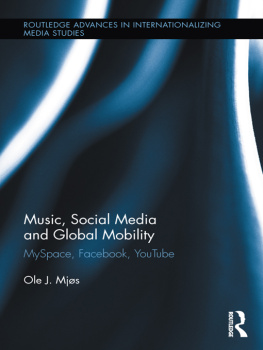
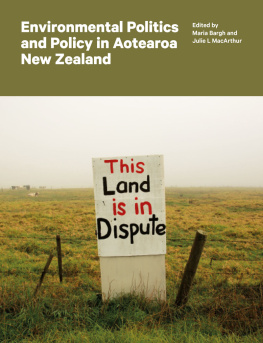
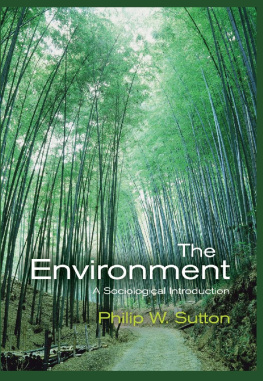
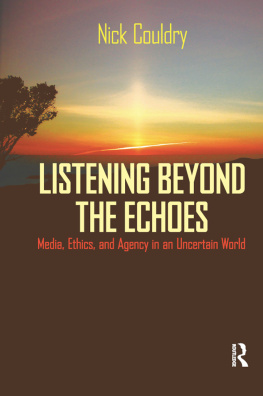
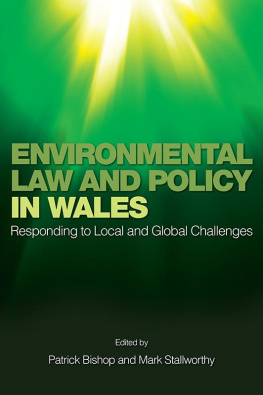
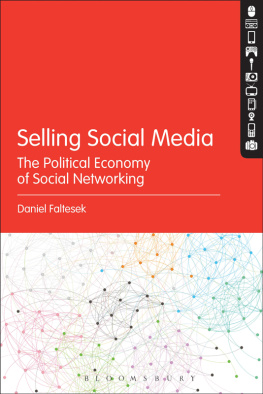


 This book is printed on acid-free paper.
This book is printed on acid-free paper.